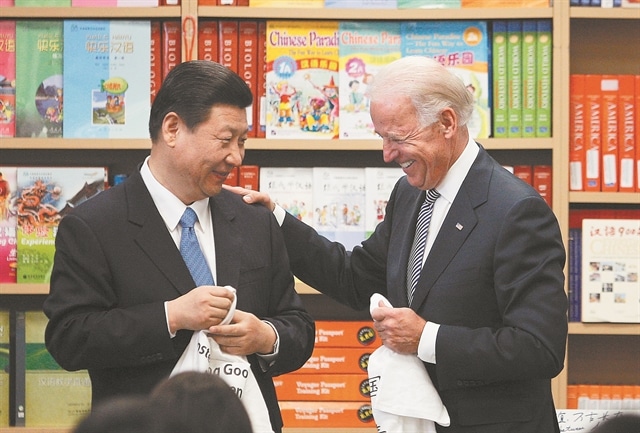When it became known that China had successfully launched a new supersonic missile capable of carrying nuclear warheads, many rushed to draw a parallel with something that happened about 65 years ago: the launch by the Soviet Union of the Sputnik satellite his name and in the Russian coronavirus vaccine), which sowed terror in the United States, raising the possibility of defeat in the relentless struggle for space and technological supremacy.
In doing so, they have sought to reinforce with another argument the theory that seems to be gaining ground lately: that humanity is on the brink of a new Cold War, in which this time the United States will face the China, which is the undisputed rising superpower and is strengthening its presence everywhere.
But how close or how far from the truth is this claim?
The truth is that US President Joe Biden, speaking from the podium of the UN General Assembly last month, tried to drop the tone.
"We are not seeking a new Cold War or a world divided into rival camps," he said.
"Strategic competitor"
At the same time, however, no one can ignore the fact that Washington has described China as a "strategic competitor" (a terminology adopted by the EU), but also "the biggest threat" to the security of the United States and the West as a whole.
"The most important geopolitical threat we face in the 21st century," said CIA Director William Burns.
In fact, by recently signing the AUKUS agreement with Britain and Australia, as well as pushing NATO to turn its attention to the Pacific from the North Atlantic, the US is proving that the scenario of a new Cold War is not far from becoming the central one. doctrine of their foreign policy.
Not ruling out the possibility of a "missile crisis", similar to that in Cuba in 1962, or an armed conflict.
But Beijing, for its part, is maintaining the above scenario, operating increasingly aggressively on all fronts - from Taiwan and the South China Sea to world trade and artificial intelligence.
This is where many find the big difference between the US and the USSR. That is, the fact that, unlike the Soviets, the Chinese represent a very strong, global economic factor, which maintains very close and organic ties with the West (including the US) - while they are determined not to be second in any field.
Another China, another USSR
Of course, this is not the only difference. The economic model of "state capitalism" applied by China, for the sake of truth, is much closer to that of the United States and the West compared to that of the Soviets.
Perhaps this is one of the reasons why China by no means has the "international radiance" of the USSR, while being forced to buy out its allies and satellites, as it is not able to win them ideologically.
Based on all the above, many are reluctant to adopt the term "Cold War" in the case of the confrontation between the present and the rising superpower.
In fact, some White House advisers warn that its repetition refers to a "self-fulfilling prophecy."
Nevertheless, despite the obvious differences and regardless of the term that will ultimately be chosen to describe it, what matters is the substance. And here, especially the "older ones" will find creepy similarities.
in.gr
